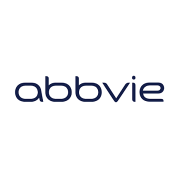- Perform high-throughput pooled CRISPR/Cas9 genetic screens to discover and validate novel immunology drug targets
- Develop and optimize various flow cytometry-based assays for cell surface markers, intracellular cytokines, and other functional assays with primary or iPSC-derived immune cells
- Apply epigenetic and genome editing approaches to functionalize non-coding variants
- Lead cross-functional target discovery and technology innovation projects by closely collaborating with multidisciplinary research scientists from diverse backgrounds including human genetics, functional genomics, bioinformatics, and disease area teams
· Participate in cross-functional target identification and validation projects to support early drug discovery efforts- Investigate novel screening hits in the context of disease biology by generating and testing hypothesis using a variety of biochemical, molecular, cellular and genomic assays.
- Present research data to group meetings, project teams, and management, and publish them in external conferences and peer-reviewed journals.
Qualifications:
· PhD in immunology, biochemistry, or genomic basis of human diseases with 0-10 years of relevant postdoctoral research experience in industry or academia
· Experience in high throughput genetic screens is highly desired- Extensive knowledge in functional characterization of immune cells including macrophages, dendritic cells, and T cells
- Knowledge in CRISPR/Cas9 technology and its delivery methods including lentiviral vectors and RNPs is highly desired
· Working knowledge in genomic technologies (e.g. NGS, RNA-Seq, single cell biology) and human genetics (e.g., GWAS), and basic bioinformatic and statistical skills (e.g., Spotfire, ArrayStudio, pathway analysis, genome browsers, etc.) is required
· Ability to quickly learn new skills and knowledge on the job, demonstrate productivity, and deliver high-quality results
· Demonstrated ability to perform as a team player AbbVie is committed to operating with integrity, driving innovation, transforming lives, serving our community, and embracing diversity and inclusion. It is AbbVie's policy to employ qualified persons of the greatest ability without discrimination against any employee or applicant for employment because of race, color, religion, national origin, age, sex (including pregnancy), physical or mental disability, medical condition, genetic information, gender identity or expression, sexual orientation, marital status, status as a protected veteran, or any other legally protected group status. - Investigate novel screening hits in the context of disease biology by generating and testing hypothesis using a variety of biochemical, molecular, cellular and genomic assays.
Senior Scientist I, Functional Genomics - North Chicago, United States - AbbVie

Description
AbbVie's Genomics Research Center (GRC) is a center of excellence for genetics and genomics that supports both Discovery and Development. The GRC goal is to develop world class genetics and genomics research focused on finding the right therapeutic targets and helping AbbVie scientists better understand not only human disease biology but also the behavior and response to our drugs in clinical trials across all therapeutic areas.
The Functional Genomics team within the GRC provides expertise in genome editing and CRISPR technology to discover and validate novel drug targets for AbbVie's therapeutic pipelines in Immunology, Oncology, IO, Ophthalmology, and Neuroscience. We utilize cutting-edge genomic techniques to transform human genetics data into drug targets and to identify pathogenetic mechanisms. We apply high-throughput functional genomic screening approaches to in vitro and in vivo preclinical models with diverse molecular and phenotypic readouts. We perform hypothesis-driven research for target validation and execute mechanistic studies utilizing a variety of genomic and non-genomic tools in primary, immortalized and iPSc-derived cell culture systems.
We have an exciting opportunity for a talented and highly motivated Senior Scientist to join our collaborative team of geneticists, molecular and cellular biologists, and computational biologists. Applicants should have broad laboratory research experience using cell and molecular biology techniques. Open communication and curiosity are essential. The candidate is expected to operate in a fast-paced, multi-disciplinary setting and must be able to execute multiple research projects in parallel.
Key Responsibilities:
